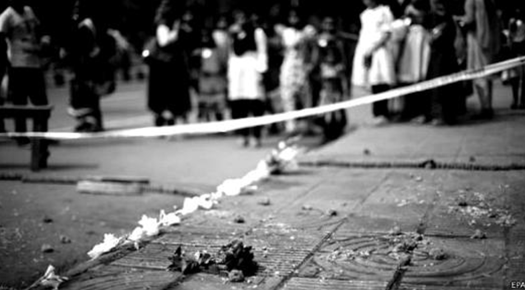
Avijit Roy was the first blogger to be killed by men with machetes and knives in Dhaka, Bangladesh on 26 February 2015. His wife, Rafida Bonya Ahmed, lost several fingers in the incident, but survived and later called on the Bangladeshi government to bring the perpetrators to justice. Roy was writing for the Mukto-Mona website, "an Internet congregation of freethinkers, rationalists, skeptics, atheists, and humanists of mainly Bengali and South Asian descent," as he described the website. He also wrote a number of books including “The Philosophy of Disbelief” and “The Virus of Faith”, and was outspoken against religious fundamentalism and extremism.
The second victim was a 27-year-old secular blogger Washiqur Rahman who was murdered also in Dhaka in March two years ago. A third blogger who wrote for Mukto-Mona, Ananda Bijoy Das, 32, was killed by men with meat cleavers and machetes.
After the brutal murders of three atheist bloggers, Bangladeshi government banned an Islamist militant group called Ansarullah Bangla Team, thought to be behind these attacks. Human Rights group Amnesty International has condemned the murders, which it says have been facilitated by government failures.
After independence, Bangladesh became a secular democracy and a republic within the Commonwealth. Islam is the largest religion in Bangladesh, adhered to by about 86.6% of the population. The country is home to most Bengali Muslims, the second largest ethnic group in the Muslim world. As a secular country, Bangladesh must have tougher reactions in the protection of human rights. Bangladeshi government should punish every form of extremism with harsher sentences. The problem is that banning a group may not be enough to protect the lives of other critics of religion. Victims and their families need some sort of security that such crimes won’t be repeated in the future and appropriate government’s reactions could provide that.
Some of the members of Ansarullah Bangla Team regrouped into another group, Ansar al-Islam, which claims links to Al-Qaeda in the Indian Subcontinent, and that group has now also been outlawed. A Home Ministry spokesman said an order was issued banning the militant outfit as "the group is involved in anti-state activities which are contrary to peace and order and a threat to public safety and security in the country."
Photo Credits: Wikimedia
